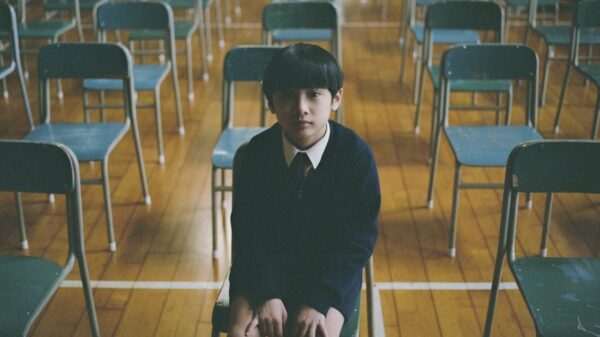Samy Moschella on the state of mental health in universities. This is an attached comment to the related news article.
The Office for National Statistics (ONS) February-March 2021 survey is useful to inform us of the conditions of young adults around the country, yet gravely lacks the proper context needed to explain why students’ mental health is deteriorating. No one is pointing fingers, but someone needs to be held accountable.
March 10th saw the release of the UK statistics office (ONS) report on the effects of lockdown on higher education students’ mental wellbeing in England.  In summary, the results reported confirmed everyone’s oblivious suspicion: mental health issues are on the rise once again, as lockdown exacerbates conditions and casts a shadow over an already-gloomy England. Interestingly enough, the report lacks contextual analysis of the reasons behind the heightened discomfort among the youth – only detailing the public with mere figures.
In my news article, I had opened with a sad banger: Tim Biggs, an ONS statistician in charge of reporting the survey results, opened his report by saying that 26% of students were feeling lonely “often or alwaysâ€, with worsening mental health conditions.
All in all, it comes to no one’s surprise that the latest lockdown (lockdown 3.0 as dubbed by users in the net), called by PM Johnson on January 5th as cases skyrocketed over the short-lived month of liberty England enjoyed after lockdown 2.0 came to an end, did more bad than good to university students’ mental health.
But the math Gibbs writes about on behalf of the ONS is chilling. Not only because it depicts the reality of the youth like you and me – broken into isolated, insecure versions of ourselves, in a moment where impeding people from coming together for comfort and support regardless of age would be the most inhumane decision to make. But also because there is no contextual interpretation, vital to statistics. The public cannot possibly think, or be led to believe, even by mistake, that students are unfortunately suffering this much by their own hand. Writing that universities and the government have been lacking at keeping up their end of the bargain during the pandemic is more about contextual interpretation from Intro to Stats than a partisan accusation.
Truthfully, the study’s figures depict a frightening image for students’ mental health.
To provide the context the study lacks, December saw England’s restriction measures relax, as life flowed back into students’ existences and a façade of normalcy reappeared. Many of the students that had flocked into their university’s city in September went back home for the holidays. Furthermore, international students were given a travel window to leave the Island devised by the government to allow enough quarantining time in the students’ home countries in time to spend Christmas with friends and family.
However, with regards to the mental health situation, neither the government nor universities seem to have done enough during the winter holidays. Effectively, early January saw panic and anxiety peak amongst students as their return plans were put into jeopardy because of the newer lockdown restrictions mandated to fight the perilous new Coronavirus mutations that were plaguing the UK. Home and international students alike saw their university lives and friends upended: many young adults in HE from both demographics either delayed or annulled their plans for the new years to come back.
Together with the rent strikes that plagued university accommodations and HE institutions’ yet unannounced plans for academic safety nets, students from all years saw their plans waver amidst all of the uncertainty surrounding them. Moreover, it ought to be remarked that many amongst the youth enrolled in HE in England decided not to move in for Semester 2 either, as Coronavirus restrictions around the world tightened and mental health issues corroded their hope for a well-deserved university experience.
With no friends, no classes, and no support, how could university students’ see the light at the end of the tunnel? Effectively, the study’s report should be a powerful wake-up call to authorities to do something about this crisis just as much as.
As a result, it is hardly surprising, regrettably, that students have been the hardest hit by the pandemic. In fact, Instagram has been the battleground for students enrolled in HE in the UK for many of the issues that were contributing to the deterioration of their mental conditions.
Rent rebate strikes and calls for more government actions to stop invoices from accommodations were the most backed up. Hot on their heels instead, were pressures for greater support for students struggling with economic and mental health problems to the-powers-that-be inhabiting 10 Downing Street. Lastly, always lurking in the background, is the hot and steady boil that is the issue of university fees not equating to the worth of the services being provided.
At the time, none of the above requests had been granted immediately – almost appearing as if speculating on university attendees was something even remotely ethical. In fact, it took the Urbanest scandal and KCL student pressure to get KCL accommodations to offer the penalty-free, opt-out clause to its residents. Instead, the mental health situation is still being handled with kid gloves, with government aids nowhere in sight.
Refunding, on the other hand, won’t even be remotely considered.
Overall, it is appalling that the ONS won’t call a spade a spade, not even producing an integrated or companion reportage. All that those wronged or neglected by the authorities want is a chance to be recognized and compensated with what they rightfully deserve.
Now, with the prospect of a vaccination rollout plan as efficient as the media and government appear to be portraying it, spirits are back on the rise, as a “normal†summer holiday season starts materializing. Will AstraZeneca be the cure to the variants, and a return to our lives, or is Covid still an uphill battle? Will we ever get back to normalcy?


















